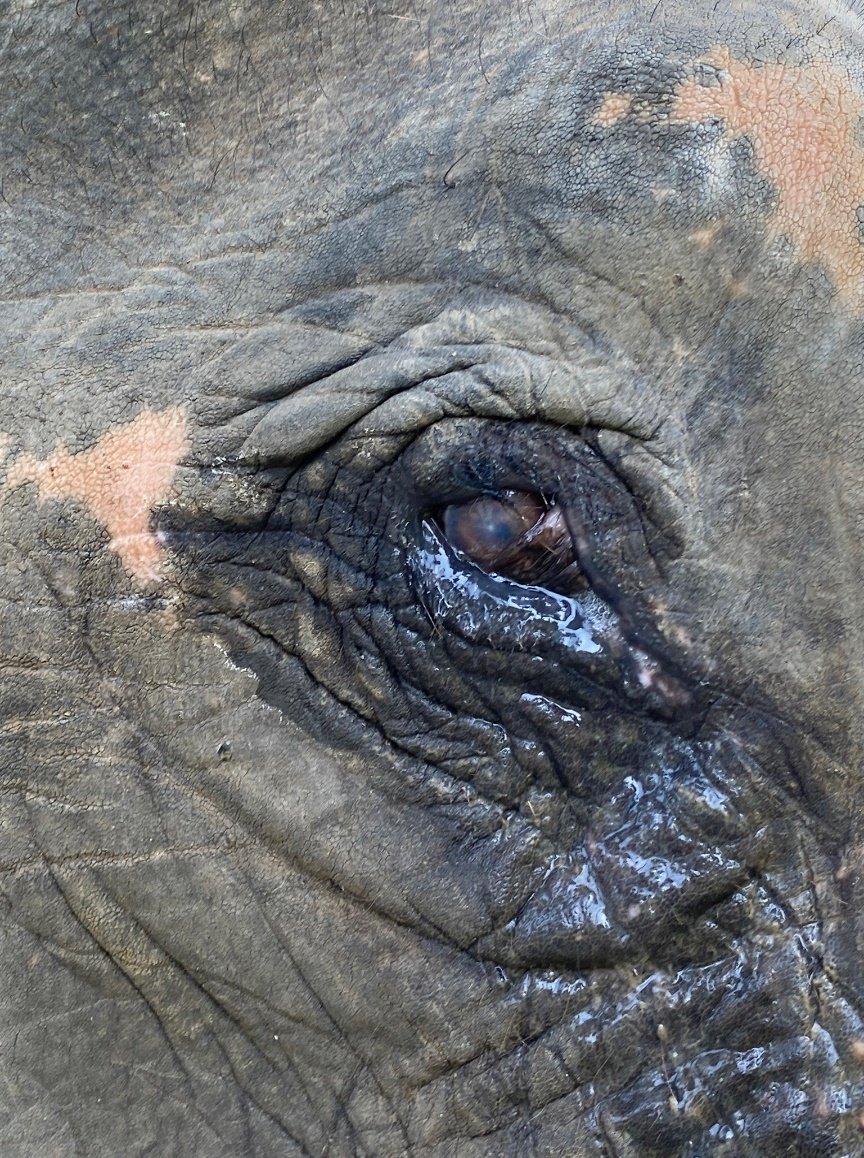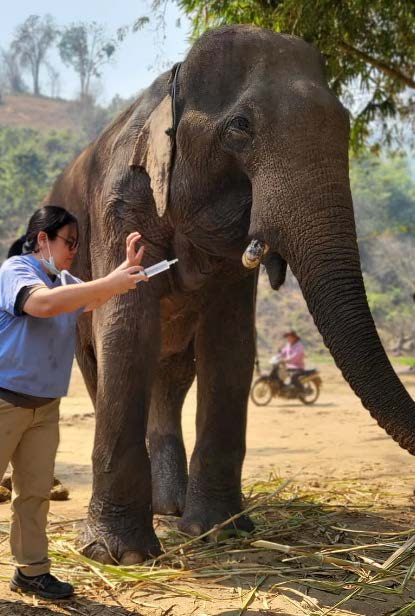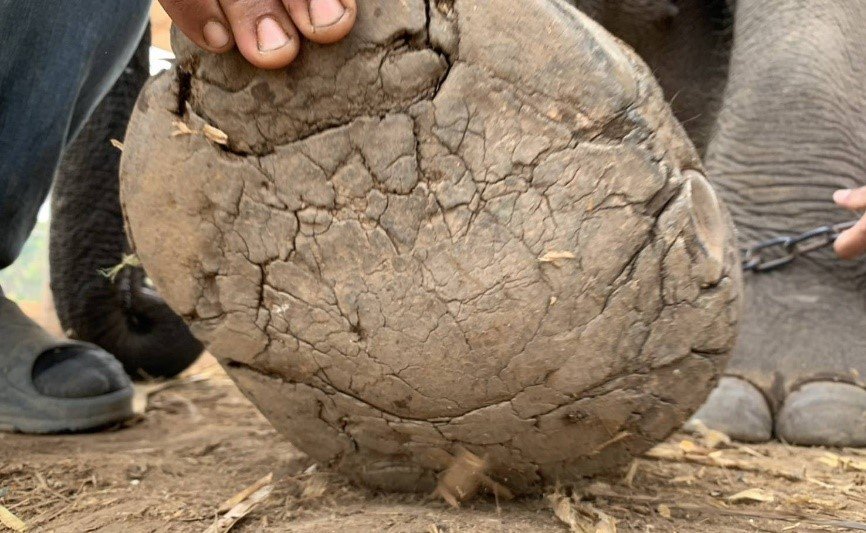February started with the team from the Chiang Mai University Mobile Vet Clinic heading out for an annual field visit to the elephants working and residing at camps in Chiang Mai province, alongside Thailand’s Department of Livestock Development (DLD) and Thai Elephant Conservation Center (TECC) veterinary teams.
An elephant is scanned for a microchip as part of an annual exam & census in the Chiang Mai province
This yearly visit, which occurred from February 3-12, comes with microchip identification, health checks, and providing elephant owners with needed medications and supplies. The teams also conducted a much needed elephant census, following the return of elephants to camps throughout Chiang Mai post-pandemic, and determined that there are 84 elephant camps in operation with 950 elephants.
While in a camp on these field visits, an elephant owner asked the Mobile Vet Clinic team to look at a 40-year-old female elephant. The elephant had a weepy right eye for about two weeks, and none of the treatments the owner had attempted were working. Upon examination, her cornea had a white spot on it, and her eyelids were warm and swelling, indicating corneal ulcers. The veterinarians provided the owner with instructions on how to treat the eye properly with eye medication and gave the elephant some pain relievers and anti-inflammatories.
Elephant receives a flush of his tusk cavity (also known as a sulcus) as part of the veterinary visit
In addition to the Chiang Mai field visits, the CMU veterinary team joined with staff from Treasure Our Elephants Fund Foundation to perform health checks on 18 elephants in Mae Hong Sorn and Chiang Rai districts.
On this trip, the veterinarians provided elephant owners medicine and education on appropriate management practices for ailments like eye infections, gingivitis, and tusk issues, as well as weight loss and proper body condition.
Elsewhere around Northern Thailand, Dr. Eye and the Mobile Vet Clinic treated elephants with issues ranging from swollen foot pads, to lameness, to lethargy. An elephant in Mae Wang that the team had treated previously for a wound after stepping on a nail, was rechecked and found to still have a swollen area on the foot. The veterinarians used a thermal camera to confirm their suspicion - an abscess had developed. Anti-inflammatory medication was provided and the owner was instructed to do foot soaks daily for 30 minutes and avoid long distance or rough-surface walking.
Swelling can be seen in the middle of the foot pad indicating possible abscess development after stepping on a nail last month
Finally, the CMU team made their way to an owner of an elderly female elephant who had been lethargic and losing weight. She had spent time at the elephant hospital but had come back to the owner recently. Upon examination this time, the old elephant had dry mucous membranes, and a poor body condition - appearing extremely thin.
After a rectal exam and removal of dried feces, the team determined her condition was brought on by one of two issues - either her age (older elephants may start to have a decline in digestion or malabsorption of nutrients in food due to tooth loss) or mismanagement of her diet (when a poor quality diet results in nutrient deficiencies and colic). This elephant was treated with analgesics, vitamins and blood was taken for testing. Her blood results came back indicating a chronic infection and kidney issues. After she was treated, her lethargy improved and she started eating. However, on February 22, she laid down and sadly, passed away that day.
Mother with calf born on January 29 in Mae Wang. The CMU Team tended to them following some complications after birth, but both are reportedly doing well after treatments
Through the ups and downs of being elephant veterinarians, Dr. Eye and Team from the CMU Mobile Vet Clinic, and all their partners in the field, continue to make a difference in the lives of Thailand’s elephants and their people. To thank the Mobile Vet Clinic team, please visit our website to make a contribution to their efforts.






